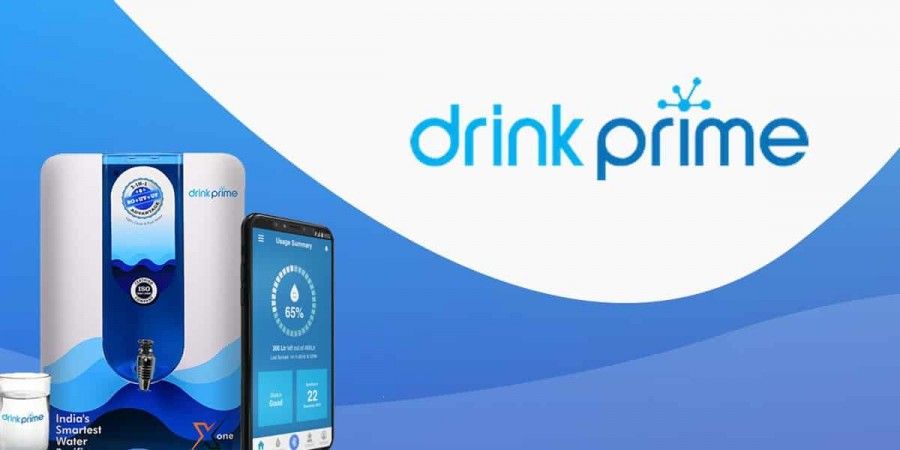In metro cities like Bangalore, packaged 20-litre water cans being lined up in the open, outside general stores, is a very common sight. However, walking through these stores rarely makes us wonder how this is impacting our life. One can spot the very recognizable branded water cans with the teal cap and unbranded cans with a white cap. The only factor differentiating these cans is the price difference. People who are indifferent to the quality of water and have no specific brand preference, tend to go with the lower-priced cans, and others opt for the slightly higher priced branded cans. But are they sure of being rewarded, in terms of health-safety, for that extra price paid?
The city water systems (including borewell water, municipal water supply, etc.) are normatively required to comply with the national standard for drinking water and yet — they don’t. Bangalore city has witnessed an unplanned and sporadic growth over the last decade. Increasing local, migrant, and ex-pat population coupled with city water systems being unfit for drinking has led to a sharp increase in people’s dependence on packaged 20-liters drinking water cans. Naturally, to meet the demand, several new packaged drinking water brands have ventured into this space.
But how many regional and national water supplying brands are we aware of that are safe and certified for drinking? The demand for 20-liter water cans in urban cities has spawned quite a several fraudulent suppliers. There is very little knowledge as to where they source their water cans. While many suppliers depend on borewells, public RO (reverse osmosis) booths, and small processing units across the city, some suppliers today are sourcing their drinking water directly from unauthorized taps and RO units set up by charitable organizations. From these units, water cans are supplied to local general stores, which deliver them to the end customers in the form of 20-liter plastic water cans at prices ranging from Rs. 30 to 150.
One cannot be expected to visually judge something like this for a water delivery they just got. Then how do you ensure that the 20-liters water can is safe to consume?
The BIS certification (Bureau of Indian Standards) is mandatory for packaged drinking water to guarantee the quality, safety, and reliability of products to the customer. No one is allowed to manufacture, sell or exhibit for sale, packaged drinking water except under the Bureau of Indian Standards (BIS) certification mark.
The BIS manual also allows the use of reusable plastic cans but a set of guidelines are put in place for their transparency level and hygiene. For example, one must have noticed blue-tinted water cans in the market. As per the BIS Policy guidelines of 2005, a plastic-container manufacturer’s certificate may be accepted if it meets the requirement of 33% blue-tint in the containers supplied. These packaged cans when exposed to sunlight may affect human health. But there is no way to know if your blue packaged water-can meets that requirement at all.
Moreover, plastic bottles constitute PETs that are photodegradable. When PET bottles are exposed to the sun consistently, they start deteriorating which in turn mixes slowly and gradually with the water inside. Being extremely toxic, it will make a huge impact on your health silently, which most of us forget to notice, especially when purchasing these cans from familiar grocery stores becomes a routine practice.
Each can should, ideally, not be toured more than 5 times before making its way into your home. In addition to that, the cans must be properly cleaned and sanitized (not just for safety in COVID) before reaching your doorstep.
This raises an important question: Does your water can service provider comply with the above standards of safe drinking water? Hence, doubts on the safety of drinking water, delivered in these cans is something that the consumers should be concerned about.
Your instant reaction to this scepticism around packaged drinking water could be to look for the second-best and affordable solution — water purifier. And, if you’re thinking that a water purifier is not at all an affordable solution you have to spend a one-short hefty amount on purchasing and after that its regular servicing and maintenance cost.
India’s technology capital, Bengaluru, where everyday startups grow rapidly, a startup also growing in the field of water purifiers industry and revolutionizing the industry in a different way.
The company believes this is the time to change our relationship with water, a commodity that is already very poorly managed. There’s a huge gap in the water supply chain which leads to sequestration of valuable information about water purity, can-usage, and the storage-conditions of water cans.
DrinkPrime RO water purifiers on subscription cater to the complex problem which almost every citizen faces today- some may have realized it in the process of solving their drinking water crisis while some are yet to. With DrinkPrime, you have access to 100% pure water, without paying water purifier costs, and maintenance costs. Not only this company, not even charges for installation, delivery, and relocation. The company installs advanced IoT enabled RO water purifiers at customers' respective homes and charging only for the pure water they consume. Whether you’re a bachelor, a couple, a family of four, or simply a workplace of 100 employees, the company provides customizable subscription plans for all. Since its inception in 2016, DrinkPrime has been one hundred percent committed to its customers and continues its efforts towards building a perfectly balanced water ecosystem.







*********eal789987@gmail.com
Thanks for sharing your info. I really appreciate your efforts.Ryan Gosling Scorpion Drive Jacket